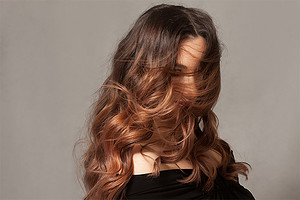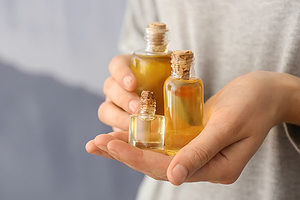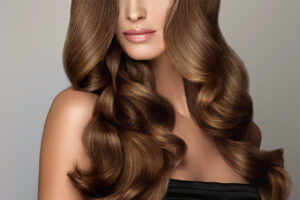Sea Satin is an oily substance extracted from sea beet (Beta vulgaris ssp. maritima). Sea Satin is used in conditioners and hair treatments due to its ability to condition the hair from roots to tips.

Sea Satin aids hair repair by adding volume, shine, and suppleness to the strands. (1)
Sea Satin is approved by COSMOS (natural and organic certification for cosmetics) to be used in personal care products and cosmetics worldwide. (2)
If you want to know more about Sea Satin and its benefits, then keep scrolling.
Article Contents
Sea Satin and Its Origin
From the name itself, Sea Satin is extracted from an aquatic plant called the sea beet (Beta vulgaris spp. maritima), which is related to sugar beet or garden beet. This plant typically grows on beaches of sand or pebbles near rocky areas. (3)
Sea Satin is a marine ingredient that helps boost hair volume and shine.
Benefits of Sea Satin for the Hair
Here are some benefits of Sea Satin for the hair.

1. Builds hair volume
Sea Satin is abundant in antioxidants, which help to neutralize the oxidative stress caused by free radicals in the scalp. Oxidative stress can lead to premature graying of the hair and hair fall.
The high antioxidant property of Sea Satin (4) can improve hair growth by maintaining collagen in the hair follicles. They also protect the scalp cells, thus promoting healthy hair growth.
The antioxidants also help to prevent the destruction of melanin in the cortex of your hair strands, hence improving the color and strength of the hair.
2. Softens and conditions the hair
SEPPIC conducted a small study where they used Sea Satin on hair fibers for 28 days. They found it improved the shine and smoothness of the hair fibers.
Thus, using Sea Satin on your hair will make it more silky and easy to comb. (1)
3. Soothes the scalp
Sea Satin helps to condition the hair and soften the scalp due to its antioxidant activity that helps to control premature hair aging, (5) hair fall, and scalp irritation. Studies conducted on Sea Satin’s effect on the hair found that it was beneficial for the skin as well. (1)
Sea Satin is an active ingredient in many shampoos, conditioners, and masks because it prevents hair’s dullness and protects it from the harmful effects of UV radiation and environmental pollution.
However, there is still a need for more clinical human trials to establish its efficiency on hair and scalp health.
Science-Backed Evidence of Sea Satin for Hair
Only a few studies demonstrated the efficiency of Sea Satin for the hair, but SEPPIC (France) analyzed it on hair fibers and the scalp and found it helpful. They found that the oily extract was a perfect ingredient for hair conditioners and treatments due to its conditioning effects on hair fibers and impact on the shine and luster of hair.
Shampoos containing Sea Satin helped make the hair smooth, soft, and easy to comb. Sea Satin is packed with antioxidants, which soothe the skin and prevent oxidative stress, which is beneficial for the hair and body. (1)
General Queries Related to Sea Beet for Hair
Can I eat sea beet?
Sea beet is also called wild spinach and can be cooked and eaten. This plant grows wildly on beaches, cliffs near the sea, and salt marshes.
Why is wild sea beet called wild spinach?
Sea beet is an ancestor of beetroot, sugar beet, and Swiss chard. The leaves have a pleasant texture and taste and can be eaten raw or cooked, so it’s also called wild spinach.
Is sea beet the same as beetroot?
Sea beet, spinach, and beetroot belong to the Amaranthaceae family. All the cultivated beets are divided into four groups: leaf beets (e.g., Swiss chard), garden beets (red beets), fodder beets (forage beets), and sugar beets. They are consumed as vegetables and used as fodder for livestock.
The red juice from beetroot contains natural pigments (betalains), which are rich in antioxidants and are used in the health, pharmaceutical, and food industries. (4)
What are the other benefits of sea beet?
Although sea beets are not used much in herbal tonics, it has a long history of treating tumors. Its seed is used to make a concoction that is used as a remedy for tumors of the intestines.
The seeds are boiled in water and are given to patients with genital tumors. The juice and parts of the plant are used to treat tumors, leukemia, and other forms of cancer such as cancers of the breast, esophagus, glands, head, and intestines.
In the olden days, beet juice was recommended to cure anemia and jaundice, clear ringing ears, and alleviate toothache. Moreover, beet juice was added to vinegar to help eliminate dandruff and prevent hair fall. (6)
Final Word
Sea Satin is an ingredient used in many oils and shampoos everywhere to naturally soften the hair and make it more manageable. This vegan ingredient is increasingly becoming popular among hair care enthusiasts as it is rich in antioxidants and helps keep the scalp healthy and soft.
If you wish to try this ingredient for your hair, visit the store or go online to purchase personal care products that contain Sea Satin.
References
- Sea satin™. SEPPIC. https://www.seppic.com/en/wesource/sea-satin.
- Natural and organic certification for Cosmetics. COSMOS. https://www.cosmos-standard.org/.
- Wild sea beet (beta vulgaris subsp. maritima), the wild ancestor of all … https://www.researchgate.net/figure/Wild-sea-beet-Beta-vulgaris-subsp-maritima-the-wild-ancestor-of-all-cultivated-beets_fig1_261719699.
- Yolcu S, Alavilli H, Ganesh P, Panigrahy M, Song K. Salt and drought stress responses in cultivated beets (beta vulgaris L.) and wild beet (beta maritima L.). Plants (Basel, Switzerland). https://www.ncbi.nlm.nih.gov/pmc/articles/PMC8472689/. Published September 5, 2021.
- Trüeb RM. Oxidative stress in ageing of hair. International journal of trichology. https://www.ncbi.nlm.nih.gov/pmc/articles/PMC2929555/. Published January 2009.
- Pfaf Plant Search. https://pfaf.org/user/Plant.aspx?LatinName=Beta+vulgaris+maritima.







